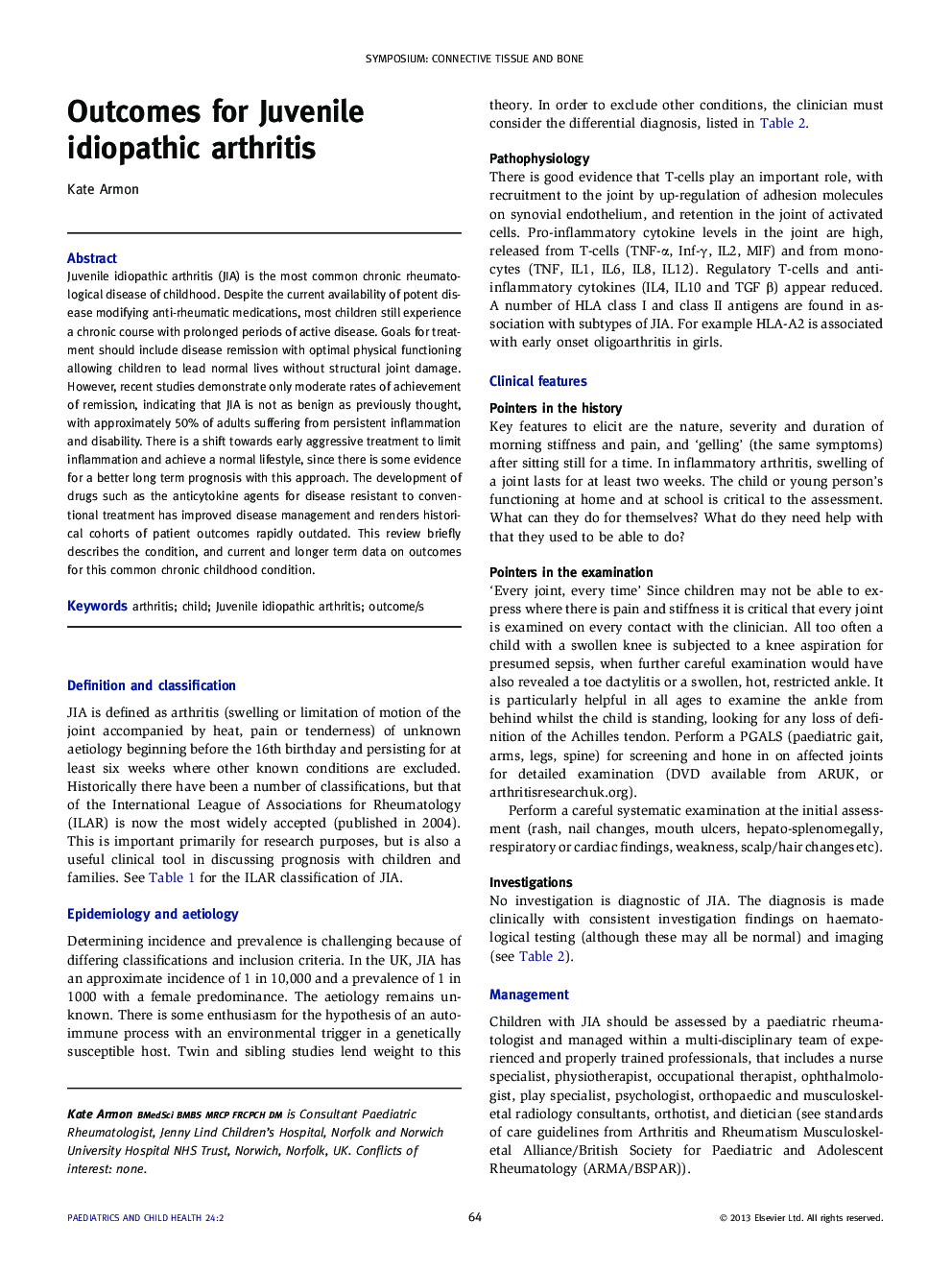| Article ID | Journal | Published Year | Pages | File Type |
|---|---|---|---|---|
| 4172091 | Paediatrics and Child Health | 2014 | 8 Pages |
Juvenile idiopathic arthritis (JIA) is the most common chronic rheumatological disease of childhood. Despite the current availability of potent disease modifying anti-rheumatic medications, most children still experience a chronic course with prolonged periods of active disease. Goals for treatment should include disease remission with optimal physical functioning allowing children to lead normal lives without structural joint damage. However, recent studies demonstrate only moderate rates of achievement of remission, indicating that JIA is not as benign as previously thought, with approximately 50% of adults suffering from persistent inflammation and disability. There is a shift towards early aggressive treatment to limit inflammation and achieve a normal lifestyle, since there is some evidence for a better long term prognosis with this approach. The development of drugs such as the anticytokine agents for disease resistant to conventional treatment has improved disease management and renders historical cohorts of patient outcomes rapidly outdated. This review briefly describes the condition, and current and longer term data on outcomes for this common chronic childhood condition.
